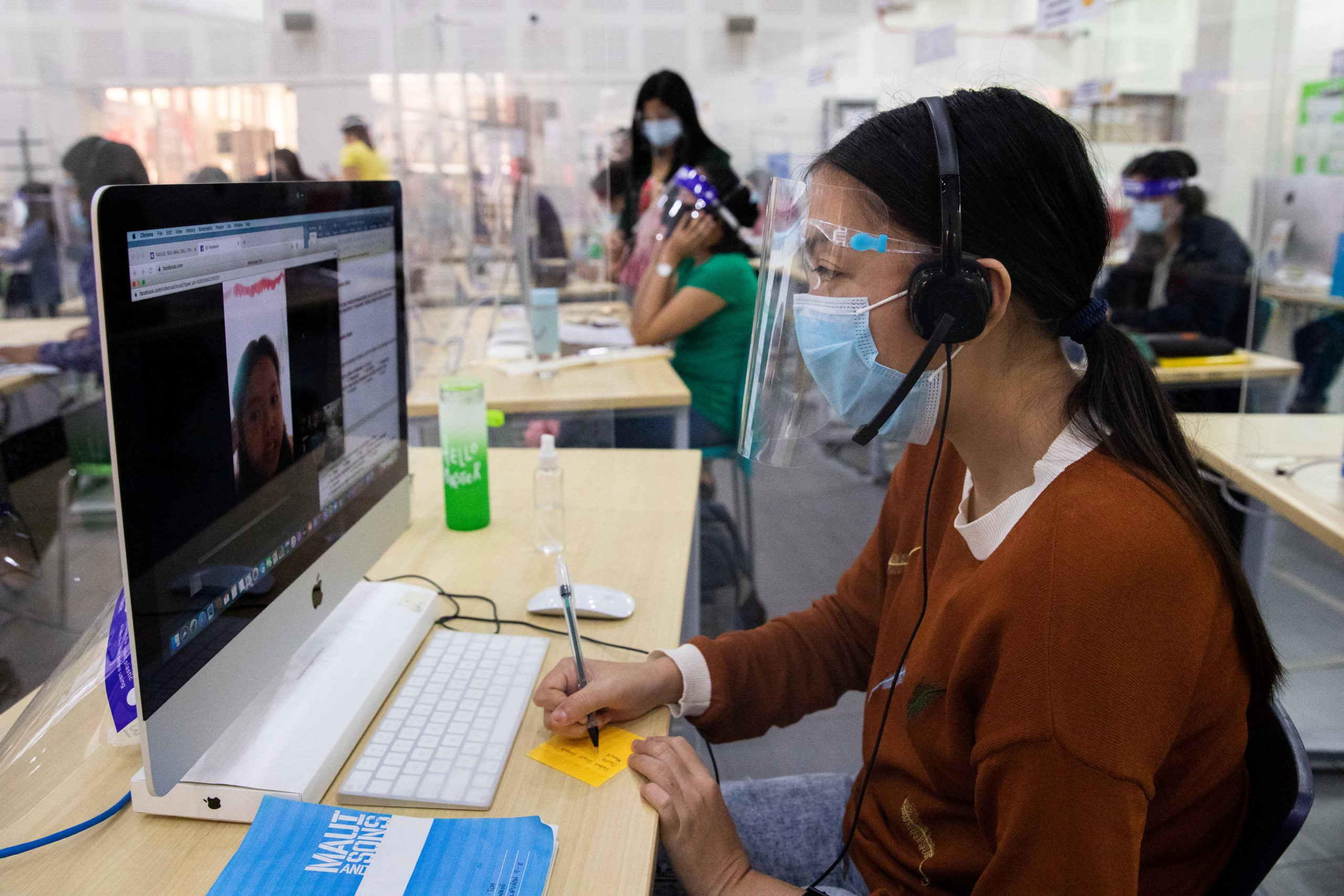
A teacher answers a call from a student in need of assistance on distance learning through a hotline program, amid the coronavirus disease (COVID-19) outbreak, in Taguig City, Metro Manila, Philippines, October 7, 2020. REUTERS/Eloisa Lopez
MANILA, Philippines — Budgetary support for teachers is “not enough” to sustain distance learning across the country, Senator Sherwin Gatchalian admitted Thursday, adding that the Philippines is the “only country” in Asia that has yet to reopen its classrooms since the pandemic.
“It’s not enough, we have 900,000 teachers and not all of our teachers have the luxury of buying internet. We did put some amounts in the Bayanihan 2 as well as in the 2021 budget, however, it’s not enough to sustain it,” Gatchalian, chair of the Senate basic education committee, said in an interview over ABS-CBN News Channel.
“That’s why this distance learning should, if possible, be limited to urban areas or to higher risk areas. But I have to admit that the budget to support our teachers with internet connections, gadgets, as well as other necessities to successfully implement distance learning is not enough,” he added.
Classes resumed nationwide on Oct. 5 with schools utilizing distance learning modality—a combination of online and modular learning—as campuses stay closed and physical classes remain suspended due to the pandemic.
The Department of Education (DepEd) earlier proposed the pilot testing of limited face-to-face classes to be scheduled in January 2021.
President Rodrigo Duterte initially gave his green light to the proposal but he recalled his approval due to the threat of the new coronavirus variant first detected in the United Kingdom.
Senators, however, pushed for a dry run of limited face-to-face classes, citing the need to gain experience and lessons for when the government finally allows resumption of physical classes.
Parents and teachers observe minimum health standards at the distribution of learning packets to students of Doña Rosario High School in Novaliches Proper, Quezon City on Wednesday, September 30, prior to the opening of classes on October 5, as the DepED shifted to distance learning due to the pandemic.-INQUIRER/GRIG C. MONTEGRANDE
“It will take time for the entire education system to normalize so the pilot testing will give us a wealth of information and data on how to go back to our face-to-face system in the future. That’s why it’s important right now to study this carefully,” Gatchalian went on.
“A lot of countries have been doing this, in fact, in Asia right now, we’re the only country which has not opened schools yet. A lot of our neighbors have already started face-to-face and that’s why we have to study our situation very carefully,” he added.
“In other countries even though they did not have the vaccine, they have already started face-to-face classes, some are partial, some are once a week but it’s important to study the situation. Each country will have a peculiar situation that’s why we learn from them, but we also study our own and that’s how we move forward,” he further said.
DepEd Secretary Leonor Briones made a fresh bid to reopen schools and allow in-person classes because most learners, who have been cooped up for too long during the year-round lockdown, have been missing physical schooling and learning in an actual school.
But Duterte thumbed down DepEd’s new push earlier this week.
The President, however, allowed last month the resumption of limited face-to-face classes for medical and allied health programs in institutions located in general community quarantine (GCQ) and modified GCQ areas.